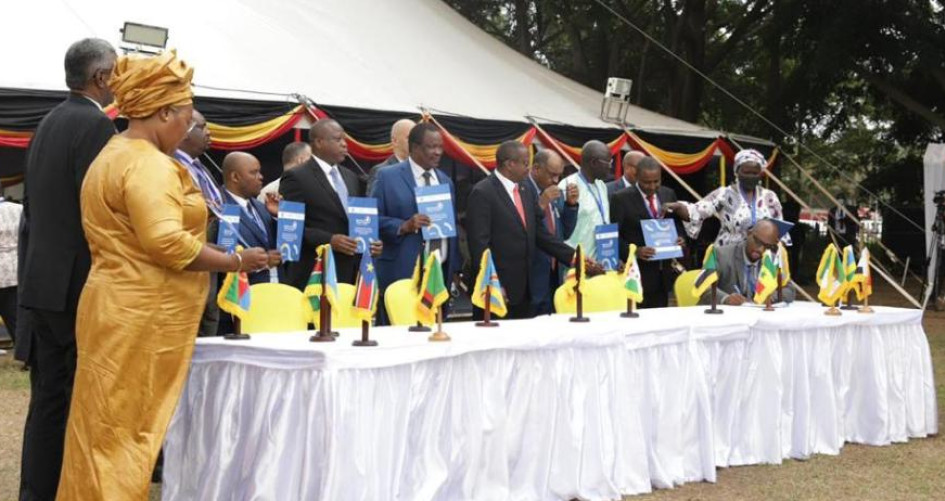Governments from across Africa met at an Inter-Ministerial Conference on Migration, Environment and Climate Change held from 27 to 29 July in Kampala, Uganda to advance cooperation on climate change induced human mobility. The Conference was organized by RCC Kampala, the International Organization for Migration (IOM) and the Ministry of Water and Environment of Uganda.
Hosted by President Yoweri Museveni of the Republic of Uganda, Ministers of Environment, Interior and Foreign Affairs from countries in the Inter-Governmental Authority on Development (IGAD), the East African Community (EAC), and States of the East and Horn of Africa met with high level representatives of the African Union, UN agencies, development partners and youth representatives. They discussed the conference theme of “Enhancing cooperation in relation to climate change induced human mobility, including migration, displacement, and planned relocation”.
The conference resulted in a landmark declaration. The Kampala Ministerial Declaration on Migration, Environment and Climate Change outlines concerns on the effects of climate change on human mobility. The Declaration is available on the IOM website.
At the conference, delegations from 12 countries in the region worked together to identify common issues and priorities. They were joined by The People’s Democratic Republic of Algeria as guest of the Inter-Ministerial Conference, The Arab Republic of Egypt as the Presidency of COP27, Republic of Senegal as Presidency of the African Union and The Republic of Zambia as Chair of the African Group of Negotiators.
The first day was dedicated to country experiences regarding migration and climate change. Youth delegates from the region also shared messages as part of this consultation process. The first day concluded with a high-level panel of experts offering ideas on how to address interrelated challenges of climate change and mobility.
The second day featured delegation position statements to ensure all voices were heard and captured in the Kampala Declaration. Two youth representatives were also present to integrate messages from youth into the Declaration.
The third and final day of the conference convened a High-Level Segment where Ministers from the 12 countries of the IGAD, EAC and East and Horn of Africa added their voice to the Declaration.
The Declaration calls for enhanced cooperation and action to address five areas of concern:
- Progressive desertification and land degradation creating forced mobility of people and livestock
- Unsustainable use of ecosystems and the impact of frequent and intense extreme weather events on people and livestock
- Unplanned migration of people from rural to urban centres as a result of climate change and disasters
- Paucity of data and statistics on the impact of climate change on human and livestock mobility in the region
- Limitations of partnerships and financing to respond to the climate crisis adversely affecting the mobility of our people and livestock in the region
The conference closed with a signing ceremony presided over by President Yoweri Kaguta Museveni of Uganda and his guest, President Salva Kiir Mayardit of the Republic of South Sudan. They shared their commitment and unwavering support to the Declaration.
In remarks at the signing, Deputy Executive Secretary Ovais Sarmad affirmed that, “The Declaration is a landmark in taking forwards regional collaboration in the specific area of migration in the context of climate change. The issue is global in nature, and for that reason so are the solutions”.
Other high-level guests at the signing of the Kampala Declaration included UN Climate Change Deputy Executive Secretary Ovais Sarmad, IOM Deputy Director General Ugochi Daniels and UN Resident Coordinator Susan Namondo. IOM Regional Director Mohammed Abdiker also attended and reminded the conference that the Declaration is a step in the right direction, as strong and urgent action is needed for a region predicted to host 18 to 36 million climate migrants by the year 2050.
Parties intend to launch the Declaration at COP27 and work with regional negotiating groups to outline action points so that issues identified in the Declaration can be considered under relevant bodies of UNFCCC process.

